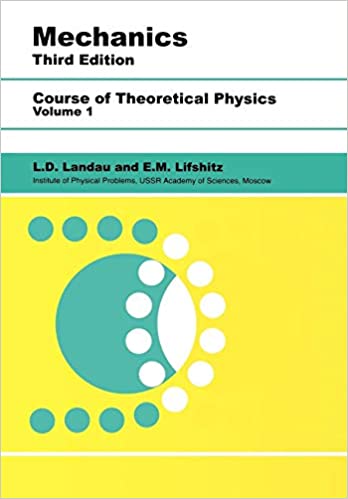Mechanics (Book)
Mechanics by Landau and Lifshitz is the start of a profound transformation of the reader from basic calculus to all of mathematics and physics. The seeds of nearly all modern subjects of interest can be found here and in the following volumes starting with the principle of least action in a coordinate invariant manner. Coordinate invariance means there is no artificial distinction between linear and angular momenta, because they are simply the momenta measured along different (cartesian vs spherical) coordinates. Further, this sets the way for physical reasoning by focusing on the geometrical qualities of the trajectories of particles which is expanded upon in mathematics as variational calculus on manifolds and symplectic geometry respectively, to the beginning and end of the book. Fundamental formulae such as Newton's laws, Kepler's formulae of celestial mechanics, and the formulae for energy are derived simply from the principle of least action. Prerequisites are minimal, but strength of courage and to interpret physics simply are required.
| Mechanics | |

| |
| Information | |
|---|---|
| Author | Lev Landau |
| Language | English |
| Series | Course of Theoretical Physics |
| Publisher | Butterworth Heinemann |
| Publication Date | 1976 |
| Pages | 170 |
| ISBN-13 | 978-0-7506-2896-9 |
Applications
Applications of Lie Groups to Differential Equations
Applications of Lie Groups to Differential Equations by Peter Olver.
Mathematical Methods of Classical Mechanics
Mathematical Methods of Classical Mechanics by Vladimir Arnold.
Geometric Structure of Systems-Control Theory and Physics
Geometric Structure of Systems-Control Theory and Physics by Robert Hermann.